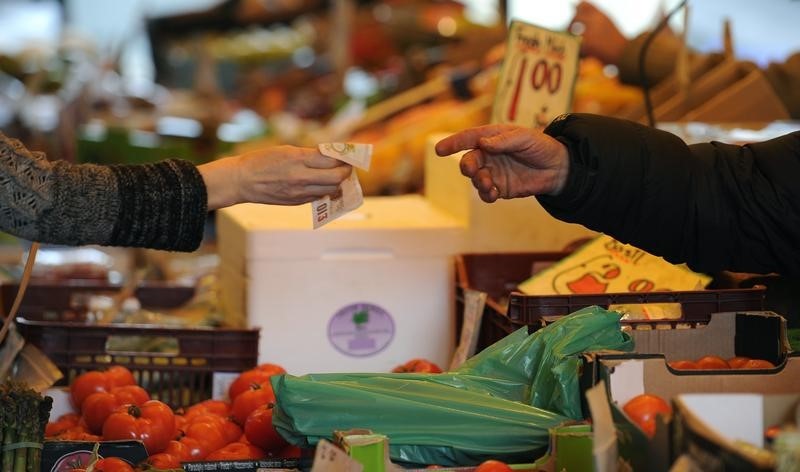Proactive Investors - Inflation unexpectedly fell in August, driven by falling food prices, boosting hopes that the Bank of England could put further interest rate rises on hold when it unveils its latest monetray policy decision tomorrow.
The Consumer Prices Index (CPI) eased to 6.7% in the 12 months to August, down from July’s 6.8%, and well below City expectations for a rise to 7.1%.
On a monthly basis, CPI rose by 0.3% in August, compared with a rise of 0.5% in August 2022.
Core CPI (excluding energy, food, alcohol and tobacco) rose by 6.2% in the 12 months to August, down from 6.9% in July, again well below City expectations of 6.8%.
The Consumer Prices Index including owner occupiers' housing costs (CPIH) rose by 6.3% in the 12 months to August 2023, down from 6.4% in July.
Simon French, chief economist at Panmure Gordon, said this was "very important data for the MPC's deliberations and holding rates this week looks now a materially under-priced outcome."
Annual inflation slowed slightly in August 2023:▪️ Consumer Prices Index including owner occupiers’ housing costs rose by 6.3% in the 12 months to August, down from 6.4% in July
▪️ Consumer Prices Index (CPI) rose by 6.7%, down from 6.8% in July
➡️ https://t.co/Ve9iV25p0e pic.twitter.com/TCZp8gJ0yV
— Office for National Statistics (ONS) (@ONS) September 20, 2023
The Office for National Statistics (ONS) said the the largest downward contributions to the monthly change in both CPIH and CPI annual rates came from food, where prices rose by less in August than a year ago, and accommodation services, where prices can be volatile and fell in August.
Rising fuel prices led to the largest upward contribution to the change in the annual rates.
The ONS said there were also large downward effects from restaurants and hotels, recreation and culture, and furniture and household goods partially offset by upward contributions from transport, and housing and household services.
